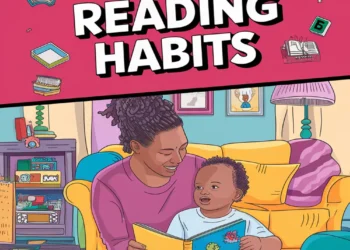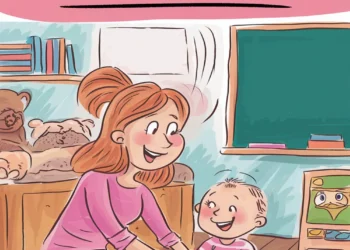Play is crucial for your child’s development, enhancing creativity, problem-solving, and emotional skills. It allows them to explore their environment and practice social interactions, building resilience and empathy. Types of play, such as physical, social, and imaginative, contribute to various skills, from communication to critical thinking. In today’s digital age, fostering active play alongside technology guarantees balanced growth. Discover how you can further nurture these essential skills through structured play experiences.
The Importance of Play in Child Development
While you may not always realize it, play is an important element in a child’s development. It fosters critical skills like creativity, problem-solving, and social interaction. When children engage in play, they’re not just having fun; they’re exploring their environment and learning how to navigate it. They practice communication, develop emotional regulation, and strengthen cognitive abilities. Play encourages them to experiment and learn from failures, laying the groundwork for resilience. It also allows kids to bond with peers, cultivating empathy and cooperation. Fundamentally, play helps shape their understanding of the world, making it a crucial component of their growth. So, the next time you observe a child immersed in play, recognize it as an investment in their future.
Types of Play and Their Benefits
There are several distinct types of play, each offering unique benefits that contribute to a child’s holistic development. Physical play, such as running or climbing, helps enhance motor skills and encourages healthy physical growth. Social play, like group games, fosters teamwork, communication, and empathy. Creative play, through art or imaginative scenarios, sparks innovation and self-expression, allowing children to explore their emotions and ideas. Constructive play, involving building or problem-solving, encourages cognitive development and critical thinking. Finally, dramatic play, where kids role-play various scenarios, develops their understanding of social roles and enhances emotional intelligence. By recognizing these types of play and their benefits, you can support your child’s growth, nurturing their physical, social, emotional, and cognitive skills through varied, engaging activities.
How Play Enhances Creativity
When children engage in play, they’re not just having fun; they’re also exercising their imaginations and developing creative thinking skills. Through role-playing, building, or storytelling, they experiment with different ideas and perspectives, fostering innovation. Play encourages them to think outside the box, where there are no boundaries or right answers. As they create, they learn to express their emotions and thoughts, cultivating a deeper understanding of themselves and the world around them. This freedom allows them to take risks and make mistakes, essential components of the creative process. By providing a safe space for exploration, you’re nurturing their ability to generate unique solutions and original ideas, setting a strong foundation for their future creative endeavors.
Recommended Items
Discover our handpicked recommendations to enhance your family’s playtime experience—enjoy exploring!
The Role of Play in Problem-Solving Skills
Play not only sparks creativity but also sharpens problem-solving skills in children. When you engage your child in imaginative play, they face challenges that require critical thinking. Whether they’re building a fort or negotiating rules for a game, they learn to strategize, adjust plans, and explore alternatives. These experiences foster a sense of resilience, encouraging them to view problems as opportunities rather than obstacles. Through trial and error, they develop essential skills like reasoning and logic, which are vital for tackling real-life issues later. By recognizing patterns and implementing solutions in play, you’re setting your child up for future success. Embracing this playful exploration cultivates an innovative mindset that lasts a lifetime, empowering them to navigate challenges confidently.
Task Overview
Social Skills: Learning Through Play
While engaging in play, children naturally learn and practice essential social skills that shape their interactions and relationships. Through play, they develop the ability to navigate social situations, fostering important connections and communication. Here are three key social skills they cultivate:
- Cooperation: Working together in games teaches them how to share, take turns, and collaborate towards a common goal.
- Conflict Resolution: Disagreements often arise in play, giving children the chance to practice negotiating and finding solutions.
- Empathy: Role-playing and imaginative scenarios allow kids to step into others’ shoes, enhancing their understanding of different perspectives.
Emotional Development and the Power of Play
Although many might see play as mere fun, it’s an essential component of emotional development for children. When kids engage in play, they’re not just having a good time; they’re also learning to express their feelings, understand social cues, and manage their emotions. Through imaginative scenarios, they explore various roles and situations, allowing them to process and articulate their experiences. This type of play fosters empathy, as children learn to see things from others’ perspectives. Encouraging your child to participate in different play activities can help them develop resilience and confidence. As you support this playful exploration, you’re nurturing their emotional intelligence, setting the foundation for healthier relationships and emotional well-being in the future.
Play as a Tool for Stress Relief
When life’s pressures start to weigh you down, engaging in play can serve as an effective stress relief tool for both children and adults. It offers a break from reality and helps to rejuvenate your spirit. Here are three ways play alleviates stress:
- Distraction: Immersing yourself in playful activities divert your attention from stressors, allowing your mind to recharge.
- Connection: Engaging in play with others fosters social bonds, creating a support network that helps ease anxiety.
- Creativity: Play encourages imaginative thinking, enabling you to approach problems differently and reduce feelings of overwhelm.
The Connection Between Play and Physical Health
Play isn’t just a source of joy; it’s also essential for your physical health. Engaging in physical play helps strengthen your child’s muscles, improves coordination, and fosters overall fitness. When kids play actively, they’re not only burning calories but also developing healthy habits early on.
Here’s a breakdown of the benefits of active play:
| Benefits of Play | Physical Health Impact |
|---|---|
| Cardiovascular fitness | Strengthens the heart |
| Muscle development | Supports growth and strength |
| Improved coordination | Enhances motor skills |
| Better flexibility | Reduces injury risk |
| Healthy weight management | Prevents obesity |
Encouraging Play in a Digital Age
In a world increasingly dominated by screens and digital distractions, fostering a balance between active play and technology is more important than ever. You can help children engage in physical play alongside their digital experiences by implementing a few simple strategies:
- Set screens to a schedule: Designate specific times for tech use and stick to it. This keeps playtime consistent.
- Encourage outdoor exploration: Organize family outings that promote active, unplugged experiences, like hiking or biking.
- Incorporate movement-based games: Look for video games that require physical activity, blending fun and fitness.
Strategies for Incorporating Play Into Daily Life
Though it might seem challenging to weave play into your busy routine, integrating playful moments can considerably enhance your child’s development and well-being. Start by setting aside a few minutes each day for interactive play, whether it’s playing a board game, building with blocks, or engaging in creative activities. Incorporate play during everyday tasks—singing a song while cooking or turning chores into a scavenger hunt. Encourage outdoor play by visiting parks or simply taking strolls where your child can explore nature. Utilize waiting times, like at doctor’s offices, to play simple games. Finally, let your child lead the play; following their interests fosters creativity and strengthens your bond. Prioritizing these moments can truly enrich your child’s life.













